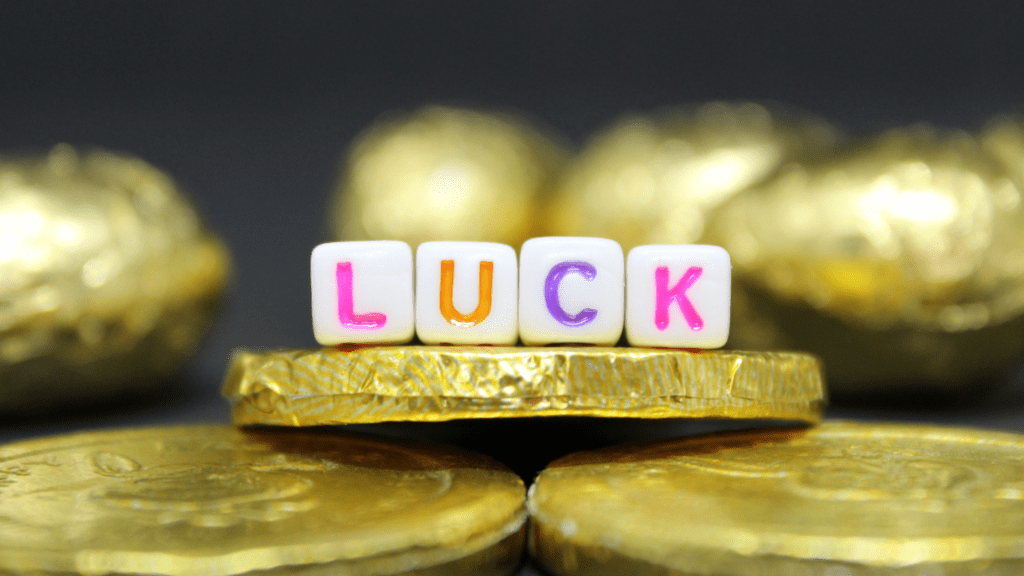Understanding Luck: A Neuroscientific Perspective
Our brain processes events and assigns meaning based on cognitive patterns. Neural networks, especially within the prefrontal cortex, evaluate outcomes and determine their significance. This evaluative process often leads to labeling experiences as lucky or unlucky.
Dopamine plays a key role in reinforcing perceived luck. This neurotransmitter, associated with reward processing, activates when outcomes align with expectations or exceed them. If an event is better than anticipated, our brain reinforces the notion of luck, heightening its perceived impact.
Confirmation bias also influences perceptions of luck. The brain tends to focus on information that supports preexisting beliefs while ignoring contradictory evidence. For instance, remembering instances of favorable events while discounting negative ones can create a skewed perception of being lucky.
The anterior cingulate cortex (ACC) monitors conflicts and errors, helping assess outcomes’ value. When faced with unexpected events, this region contributes to interpreting them as serendipitous or fortunate. Our brain essentially uses this function to navigate uncertainty.
By understanding these neurological mechanisms, it becomes clear that luck isn’t purely external. Cognitive processes, biases, and neurotransmitter activity significantly shape how individuals perceive and interpret fortunate events.
The Brain’s Role In Perceiving Luck
Perception of luck relies heavily on specific brain functions and neural mechanisms. Neural activity and chemical processes guide how individuals interpret and assign meaning to events.
The Connection Between Neural Pathways And Decision Making
- Neural pathways directly influence decision-making and how outcomes are perceived.
- Complex networks in the prefrontal cortex process and evaluate choices, weighing potential outcomes against past experiences.
- The orbitofrontal cortex assigns value to these outcomes, which shapes judgments of whether results seem fortunate.
- If inconsistent or ambiguous outcomes occur, the anterior cingulate cortex (ACC) steps in to detect the conflict.
- This region helps determine if the unexpected event aligns with what one perceives as lucky.
- The brain’s past reinforcement patterns and memory retrieval also affect interpretations, making some outcomes feel more significant than others.
The Role Of Dopamine In Perceived Fortune
- Dopamine plays a pivotal role in the brain’s perception of luck.
- Elevated dopamine levels occur when actual outcomes surpass expected outcomes, resulting in feelings of reward and perceived fortune.
- This neurotransmitter, activated by the ventral striatum, reinforces the association between an event and a sense of luck.
- Random positive experiences can build strong neural links due to dopamine surges, causing the brain to recall such moments as unusually lucky.
- If an event repeatedly aligns with positive coincidences, the basal ganglia stores these patterns, amplifying the perception of consistent fortune.
Cognitive Biases And The Illusion Of Luck

Cognitive biases shape how the brain interprets chance and patterns, often creating the illusion of luck. These biases originate from specific neural mechanisms designed for efficient decision-making but can distort perceptions of randomness and fortune.
The Gambler’s Fallacy And Its Neural Basis
The gambler’s fallacy emerges when the brain expects random events to self-correct after streaks. For example, after multiple coin flips resulting in heads, one might assume tails is “due.” This bias stems from the brain’s tendency to seek patterns in random sequences. The prefrontal cortex plays a role in this misinterpretation by analyzing probabilities inaccurately when outcomes deviate from expected norms.
The ventromedial prefrontal cortex links emotional significance to streaks of wins or losses, reinforcing such misconceptions. Dopamine levels further intensify this fallacy by associating streaks with heightened pleasure or frustration. As a result, the brain wrongly anticipates changes in randomness, fueling superstitions about lucky or unlucky streaks.
Confirmation Bias And Its Impact On Luck Perception
Confirmation bias affects luck perception by making the brain favor evidence that supports preexisting beliefs. If someone considers themselves “lucky,” the brain highlights positive events, like winning a raffle, while ignoring losses or neutral outcomes. Conversely, those who see themselves as “unlucky” remember negative incidents disproportionately.
Neural activity in the anterior cingulate cortex (ACC) contributes to this selective focus by filtering conflicting information. The hippocampus strengthens these biased memories, solidifying belief systems. Dopamine amplifies the process, rewarding events aligned with expectations and reinforcing the brain’s habitual focus on validating perceived fortune. This cycle creates an illusion of consistent luck, whether positive or negative.
How Neuroscience Links Luck And Risk-Taking
Neuroscience reveals how brain functions influence risk-taking behaviors and the perception of luck. Specific neural processes guide decision-making during high-risk situations and emotional responses to uncertain outcomes.
Brain Activity During High-Stakes Decisions
The prefrontal cortex heavily influences decisions involving significant risks. It evaluates potential outcomes by processing probabilities and weighing rewards against possible losses. When assessing high-stakes choices, the dorsolateral prefrontal cortex (DLPFC) manages logical thinking, while the orbitofrontal cortex assigns value to potential results.
Dopamine levels surge during moments of high risk, particularly when an anticipated reward feels attainable but uncertain. This neurotransmitter strengthens motivation to pursue risky opportunities, heightening the perception of “luck” if the outcome aligns favorably. However, imbalances within dopamine pathways can lead to overestimating probabilities, encouraging bolder but less rational risk-taking.
The anterior cingulate cortex (ACC) detects errors or mismatches in expectations versus reality. If risks yield surprising benefits, the ACC flags the experience as significant, influencing interpretations of favorable outcomes as “lucky.”
The Influence Of Emotions On “Lucky” Outcomes
Emotions play a critical role in framing events as lucky or unlucky. The ventromedial prefrontal cortex (vmPFC) integrates emotional significance into decision-making, particularly under uncertainty. Positive emotions, triggered by dopamine surges or feelings of success, reinforce the perception of luck by associating certain choices with beneficial results.
Conversely, stress and fear activate the amygdala, amplifying cautious behavior and skewing perceptions of luck toward negative outcomes. If a risky decision produces an unexpected benefit, the emotional contrast strengthens the brain’s memory of the event as unusually fortunate.













































































































































































































































































































































































































































































































































































































































































































































































































































































































































































































































































































































































































































































































































































































































































































































































































































































































































































































































































































































































































































































 Gamble Today Smart, founded by Michelles Choigillz, is a forward-thinking platform promoting informed and ethical gambling. It offers data-driven insights, explores the science of luck, and highlights tech trends like AI and blockchain to help users gamble responsibly. Located at 1759 Elk Rd Little, Tucson, AZ 85701, and reachable at +1 520-256-0810, it’s a trusted resource for smarter, strategic gambling.
Gamble Today Smart, founded by Michelles Choigillz, is a forward-thinking platform promoting informed and ethical gambling. It offers data-driven insights, explores the science of luck, and highlights tech trends like AI and blockchain to help users gamble responsibly. Located at 1759 Elk Rd Little, Tucson, AZ 85701, and reachable at +1 520-256-0810, it’s a trusted resource for smarter, strategic gambling.